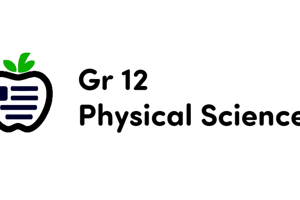Podcast
Questions and Answers
What is the main outcome of combustion processes?
What is the main outcome of combustion processes?
- Magnetism
- Sound
- Electricity
- Light (correct)
Which of the following fuels has a higher calorific value compared to solid fuels?
Which of the following fuels has a higher calorific value compared to solid fuels?
- Coal
- Paper products
- Natural gas (correct)
- Wood chips
What is the primary difference between wood chips and propane in terms of their calorific value?
What is the primary difference between wood chips and propane in terms of their calorific value?
- Propane releases more energy per unit volume (correct)
- Wood chips have a higher availability
- Wood chips produce more heat
- Propane produces less smoke
Which of the following is NOT a common fuel used in combustion processes?
Which of the following is NOT a common fuel used in combustion processes?
What are the three main outcomes of combustion mentioned in the text?
What are the three main outcomes of combustion mentioned in the text?
Which type of combustion is characterized by its intensity and high visibility?
Which type of combustion is characterized by its intensity and high visibility?
What happens when fuel and air become unstable and ignite, resulting in rapid burning?
What happens when fuel and air become unstable and ignite, resulting in rapid burning?
Which type of fire is hard to detect due to its low visibility and slow start?
Which type of fire is hard to detect due to its low visibility and slow start?
What substances can undergo combustion when reacting with oxygen?
What substances can undergo combustion when reacting with oxygen?
In what type of combustion do lithium ion batteries release toxic gases like carbon monoxide?
In what type of combustion do lithium ion batteries release toxic gases like carbon monoxide?
Flashcards are hidden until you start studying
Study Notes
Combustion and Flame
Combustion is a complex chemical process involving the rapid oxidation of fuel particles in air. This reaction produces heat, light, and often smoke. It occurs when oxygen reacts with hydrocarbon fuel, such as natural gas, oil, coal, propane or other substances like wood or paper. The resultant fire depends greatly on how fast and strong the burning takes place, hence the term flaming.
Types of Combustion
There are three main types of combustion:
-
Pyrolysis: This is a type of combustion where organic materials such as plastic and paper decompose into their component elements. For example, lithium ion batteries may undergo pyrolysis, releasing toxic gases like carbon monoxide.
-
Flames: These occur when the mixture of fuel and air becomes unstable and ignites due to the formation of a vapor cloud. In this case, the fire burns rapidly. If you have ever had a campfire, you know what it looks like when it's just starting to glow before turning into flames.
-
Smoldering: This type of fire is less intense compared to flames. Smoldering fires start slowly and have low visibility, making them hard to detect. They release very little smoke, and if left alone, they can smolder undetected for days without causing much damage.
Fuels Used in Combustion
The most common fuels used in combustion processes include:
- Wood chips from trees
- Paper products, including cardboard boxes
- Solid waste such as furniture and household items
- Natural gas
- Propane
- Coal
These fuels vary widely in terms of their calorific value, which means the amount of energy released per unit volume. For instance, propane has a higher calorific value than solid fuels because it releases more energy per unit volume.
In summary, combustion involves the rapid oxidation of fuel particles in air, leading to heat, light, and smoke. There are different types of combustion, each characterized by its intensity and visibility. Common fuels used in these reactions range from readily available sources like wood and paper to processed materials like natural gas and propane.
Studying That Suits You
Use AI to generate personalized quizzes and flashcards to suit your learning preferences.




